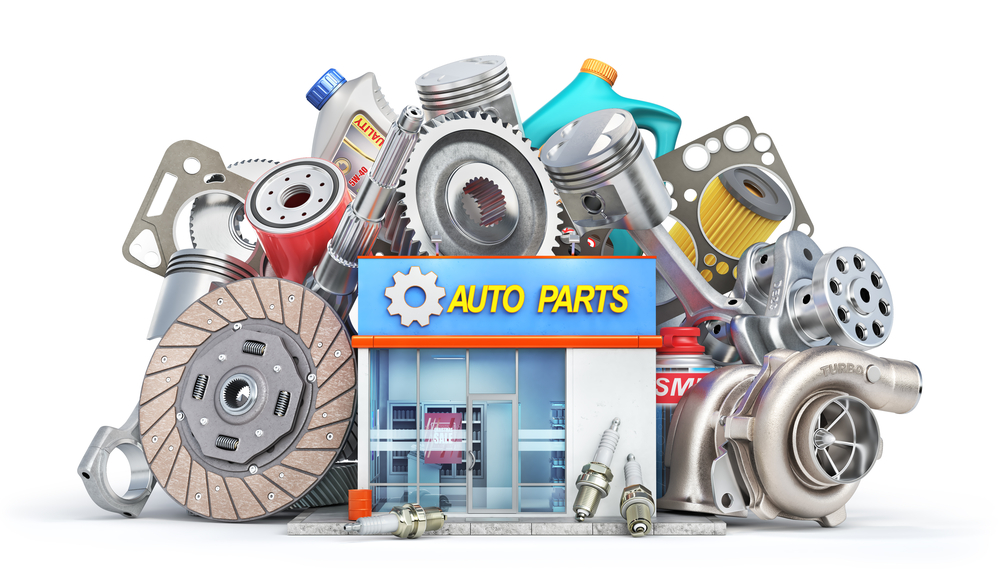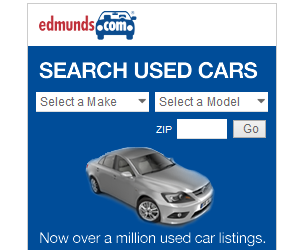The ugly truth behind auto part pricing
Valerie Raskovic

When your vehicle is in need of repair, you'll typically take it to your local mechanic shop or dealership. When you receive the estimate or itemized receipt for the work done on the vehicle, you'll notice a variety of charges, but the majority of the bill will consist of just two components: labor costs, which are typically calculated based on hours worked and the cost of parts.
The per-hour labor costs for mechanical repair will vary greatly depending on the vehicle, the repair shop and the location. Typically, a shop will charge anywhere between $50 and $250 per hour. However, especially shops specializing in exotic vehicles or custom fabrication may exceed the $250 per hour rate. Be sure to ask for the shop rate before agreeing to them working on your vehicle, including running diagnostics.
While the hourly labor rate is fairly straightforward the replacement car part costs are not. Car parts may be sold at a different price within different markets. The distinction between retail car part costs and those purchased by businesses with a reseller certificate lies in the pricing structure and benefits associated with each. Retail car part costs typically reflect the price paid by individual consumers or end-users. These prices often include markups that cover various expenses incurred by retailers, such as freight shipping, marketing expenses, other overhead, and profit margins.
On the other hand, a business can access car parts at wholesale or discounted prices from suppliers or distributors. With a reseller certificate, businesses are exempt from paying sales tax on purchases made for resale purposes. This allows them to purchase car parts at lower costs and then resell them at higher prices to the customer. There is nothing wrong with adding a reasonable markup to the cost of the parts. In fact, many distributors offer a retail price to the shop purchasing the parts, even when they acquired the parts at a wholesale rate. This practice aims to incentivize the repair shop to sell the parts at their full retail price. It is a very common practice that helps repair shop businesses pay for the time it takes to order the parts, to store them and for additional un-itemized business expenses.
The issue of price gouging exists mainly with less reputable repair shops that may include the cost of parts in the repair job at prices above suggested retail, significantly inflating the prices to a point that a customer may even pay double the retail price. This practice can be deceptive to customers who typically assume that the quoted price reflects the actual cost of the parts paid by the repair shop.
If you are not sure if your repair shop is charging a fair price for replacement parts, there are ways you can check. Always request a repair estimate prior to approving any work on the vehicle. Insist that the repair estimate is fully itemized and contains all of the part numbers of the parts needing replacement. Once you have your estimate, record all the part numbers and also make note of what type of parts they have added to the quote. Find out if the parts are genuine OEM parts being purchased from a reputable dealer or aftermarket replacement parts purchased through a third-party vendor. In some cases, in an effort to save the customer money or due to limited availability, the shop may opt for preowned parts. Once you know where the parts are being sourced from, you can do some due diligence by contacting the part resellers yourself, asking for rates based on the part numbers provided in your repair quote. Be sure to compare apples to apples. Avoid comparing genuine OEM prices with aftermarket replacement parts prices. While genuine OEM parts may come at a premium, they often offer superior performance and durability compared to low-cost aftermarket alternatives, mainly due to more stringent quality control measures.
If your repair shop is suggesting to replace the parts with preowned parts, you may want to do some research to understand the average cost of those preowned prices. Since in most cases the shops are going to prefer to use genuine OEM preowned parts rather than preowned aftermarket replacements, you can also call your local dealer to ask for the price for the same parts new. There have been cases where customers reported the shops charging more for preowned parts than their new equivalents. This practice is typically employed by unscrupulous businesses mainly to increase profit margins.
If your repair shop recommends replacing parts with preowned ones, it's wise to research the average cost and availability of such parts. Typically, when a shop recommends using a preowned part, they will prefer using genuine OEM preowned parts over preowned aftermarket alternatives. You can contact your local car recycler as well as a new OEM parts dealer to inquire about the cost of the same parts both in used and new condition. This way you can decide if the potential savings is really worth buying a used part with a potentially shorter lifespan. In certain instances, when obtaining a new part may prove challenging due to reasons such as it being out of production, on backorder or requiring international shipping, which can lead to significant delays so, the preowned market may be your only alternative.
Regardless of which option you choose, it is vital you stay proactive and be informed when it comes to each charge item added to your repair estimate. We do not advise providing your own parts to the repair shop, as most shops may have an issue with that and rightfully so. When a repair shop is not the one buying the replacement parts, they may have some serious difficulties filing warranty claims to the manufacturer if and when the part the shop replaced fails prematurely. This is why many repair shops refuse to accept repair jobs when customers provide their own parts or they may require the customer to sign a waiver relinquishing the repair warranty, where legally permissible.
There are many reputable and honest repair shops in the US and we have partnered with RepairPal to weed the good ones from the bad so you do not have to. To learn more visit: https://www.vincheckup.com/repair-shops
Read more articles

